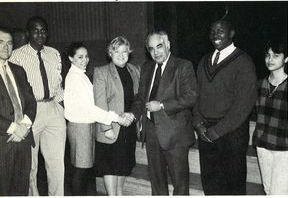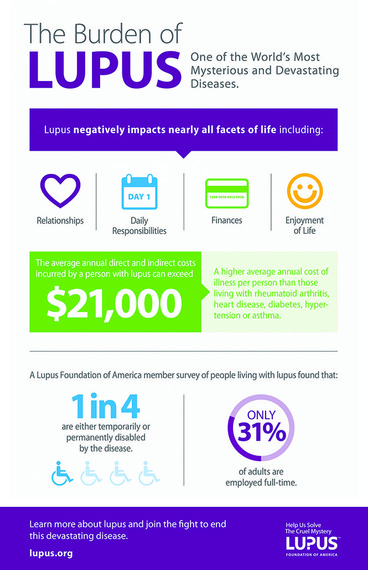Back in 1988 a bright young woman came to NFTE and permanently changed how we saw youth entrepreneurship education.
NFTE students that year
At the time, I was teaching a program for young people with lupus, sponsored by the JM Foundation. I had never heard of this disease before, and I was not aware of how serious it was for children.
Lupus is a chronic, autoimmune disease--that can go from a mild illness to a life-threatening disease. In fact, there are an estimated 1.5 million Americans with the disease, according the Lupus Foundation of America. In many cases, pediatric lupus can take a more aggressive turn than it does with adults.
(source: the Lupus Foundation of America)
When I first walked into our class, it was obvious who was the most engaged student. Her name was Mary--a beautiful young soul with supportive parents who loved her very much. Mary was also a natural entrepreneur--at that age 17, she already had her own jewelry business. She intuitively understood the economics of one unit, she wrote her business plan in a few days, and she was selling about $100 of her products every week.
As our class progressed through NFTE's lessons, Mary's health worsened. One day, she ended up in the hospital, where she would need long-term, ongoing treatments. Despite her new home and her diagnosis, Mary kept her spirits high and wanted to stay connected to NFTE and to business. We trained her to teach an abbreviated youth entrepreneurship program to fellow, terminally-ill patients. I remember going to visit her, and each of her students--with several months to live, at best--eagerly presented their businesses to me.
Later, when we wanted to evaluate the impact our program was making, we asked the students to write an essay on what they had learned from this work. One student wrote that the program helped raise her self-confidence. Other students told us that the suddenly felt more control over their lives.
The psychologist working on that floor told us that many of these students had felt suicidal before Mary's program arrived. As you can imagine, many children find it difficult to appropriate or cope with a serious illness, the need ongoing treatment, or a terminal diagnosis. In fact, my friend Sheri Bryson wrote a guide for terminally-ill children, but at this time resources like that were few and far between.
Sherri's book
Many terminally-ill children are forced to deal with their health challenges before they have developed the coping skills to understand the gravity of illness. It is this fact that predisposes them to depression and feelings of loneliness, being overwhelmed, and worry. But the ability to feel part of something like Mary's program or the ability to feel in control of something is empowering to all people -- terminally ill or not.
Entrepreneurs know that their business successes are personal successes--and their business challenges are personal challenges. Entrepreneur Magazine
Tragically, Mary passed away soon after this time but I am often reminded of her spirit and her passion to share entrepreneurship with her peers and students.She had a huge impact beyond her years and will always be remembered.
The names used in this article have been changed.



